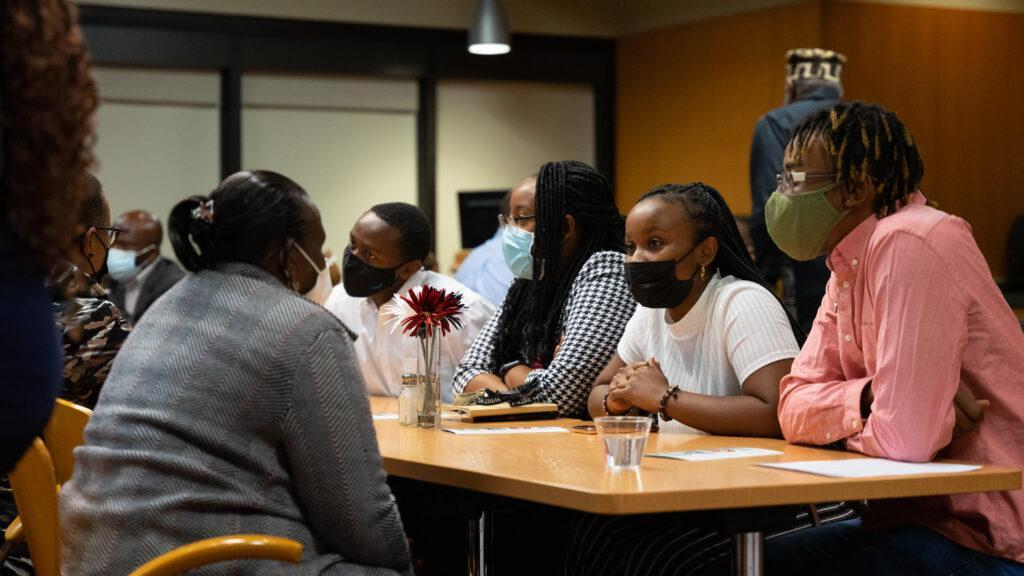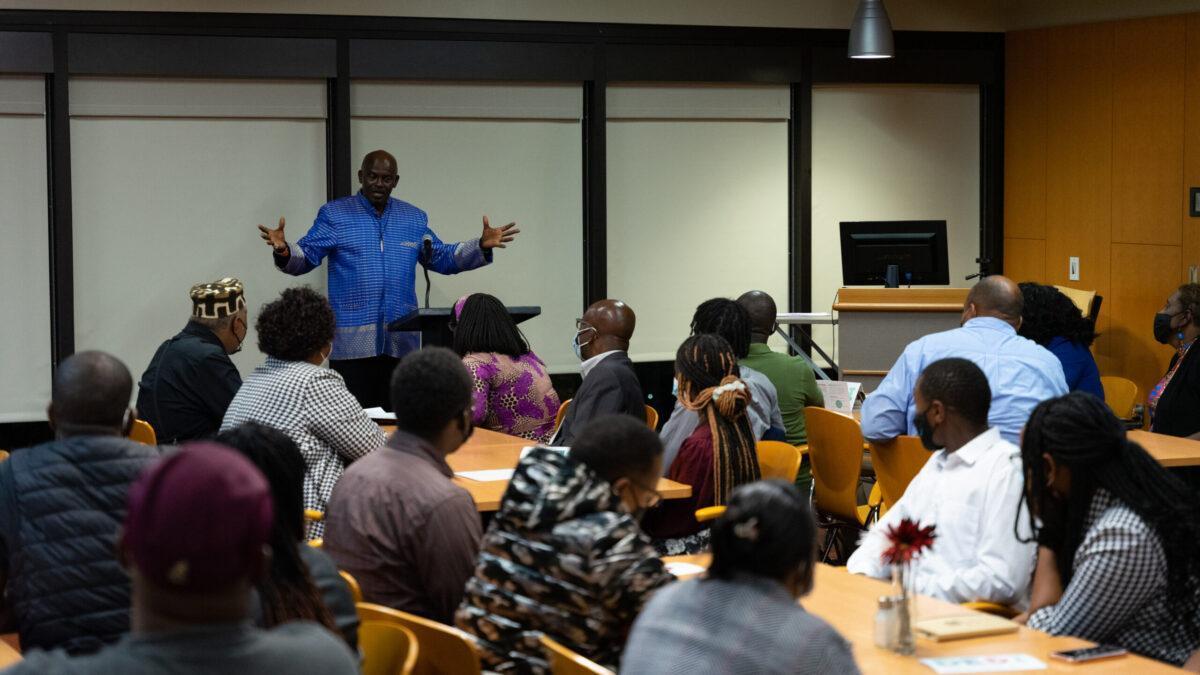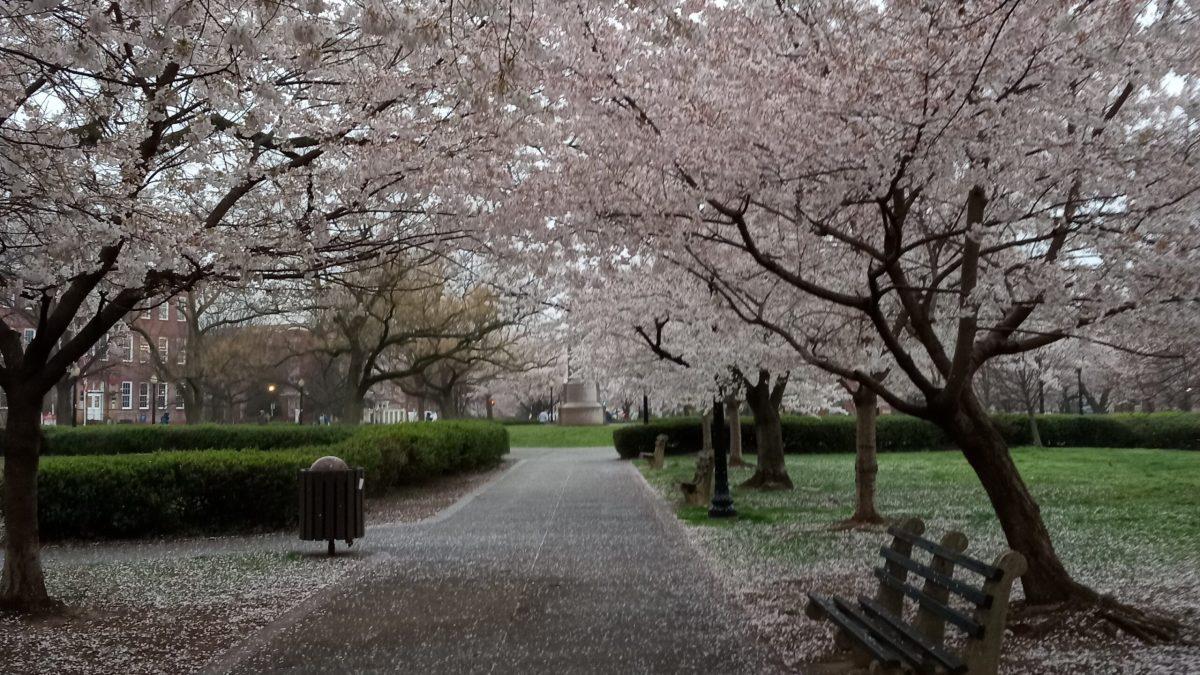By Samantha Holm | Arts & Culture Editor

Republic of Kenya Parliament members touched down in Spokane on Friday, Sept. 10 with the goal to encourage unity and discuss ethnic discrimination. On Sept. 14, Whitworth had the privilege of hosting these delegates in the Crow’s Nest for a dinner with African American students, alumni and faculty.
Honorable Janet Nangabo Wanyama, Honorable David Ochieng, Honorable Maison Leshoomo, Honorable Judith Nayiai Pareno and Mr. Abdifatah Bule attended the dinner. They are members of both Kenya’s parliament and the National Cohesion and Integration Commission (NCIC), which was formed in 2008 in response to political violence.
They are visiting to fulfill their 2020-2025 strategic plan, which, according to the NCIC website, seeks to “examine the obstacles to an effective institutional working progress.”
Megan Hershey, African studies professor and one of the many coordinators of the collaboration between Whitworth University and NCIC, described the event as an opportunity for “cultural exchange,” allowing students, faculty and dignitaries to celebrate their differences, as well as discuss issues of race, ethnicity and socioeconomics.
Honorable Janet Nangabo Wanyama used the event to educate students on the history of women’s rights in Kenya. “Our work was to give birth to children and cook for our husbands, but I tell you, things have changed,” she said.
Nangabo is a representative for the Trans-Nzoia County. She said many women are attending schools in her county and performing “marvelously”. According to the county’s public website, there are 220,019 students enrolled in public schools. Out of this number of students, around 50% are girls.
Lobbying for women’s education is just one piece of Nangabo’s advocacy. Through the Janet Nangabo Foundation, she resettled citizens of Trans-Nzoia County displaced by ethnic violence and spearheaded improving services involving health, water, sanitation, security and infrastructure. Elected to Parliament twice, in both 2013 and 2017, she said she plans to secure another nomination for 2022.
Attendees believed the event was an opportunity to dispel myths about Kenya. “There must be a limit and a time for the West to stop stereotyping Africa [as a continent with no leaders],” said Nicholas Sironka, a Kenyan Fulbright Scholar-in-Residence hosted by Whitworth from 2000-2001. “We even have female leaders, chosen by over 360,000 individuals.”
Sironka is an independent artist hailing from the Maasai tribe of Kenya and Northern Tanzania. He specializes in batik art, which involves using wax-resistant dye on fabrics. At the dinner, he presented one of his pieces entitled “Gift of God” to the members of parliament.
Sironka said he believes Whitworth is one of few universities to have in-depth conversations and hold events centered around diversity but he needs to “see more of it.”
Ibrahim Diop, a senior and an attendee of the dinner, agreed with Sironka’s call. “[It’s important] to connect students and destroy biases, prejudice, racism and bigotry,” he said. “Bringing in people from different countries and backgrounds is a tool to expand our minds and destroy these different malignant biases.”
During the dinner, students expressed enthusiasm about conversing with influential government leaders. “I think it’s really cool that we get to meet people that actually work in government, especially for an African country,” said Munya Fashu-Kanu, a music major and senior.
Jeremy Muriungi, a Whitworth senior from Kenya, looked at the event as a chance for networking as well. “I think it’s wonderful that I have my fellow country people here,” Muriungi said. “[I’m looking forward to] connecting with them, hearing their experiences and sharing my own.”
The delegates were just as inspired by the Whitworth community. “I’m very happy, especially with the foundation of this university,” Nangabo said. “I really like [that they’re] bringing all the communities together [and talking] about the Word of God. I’m really pleased.”
















 Spokane?
Spokane?